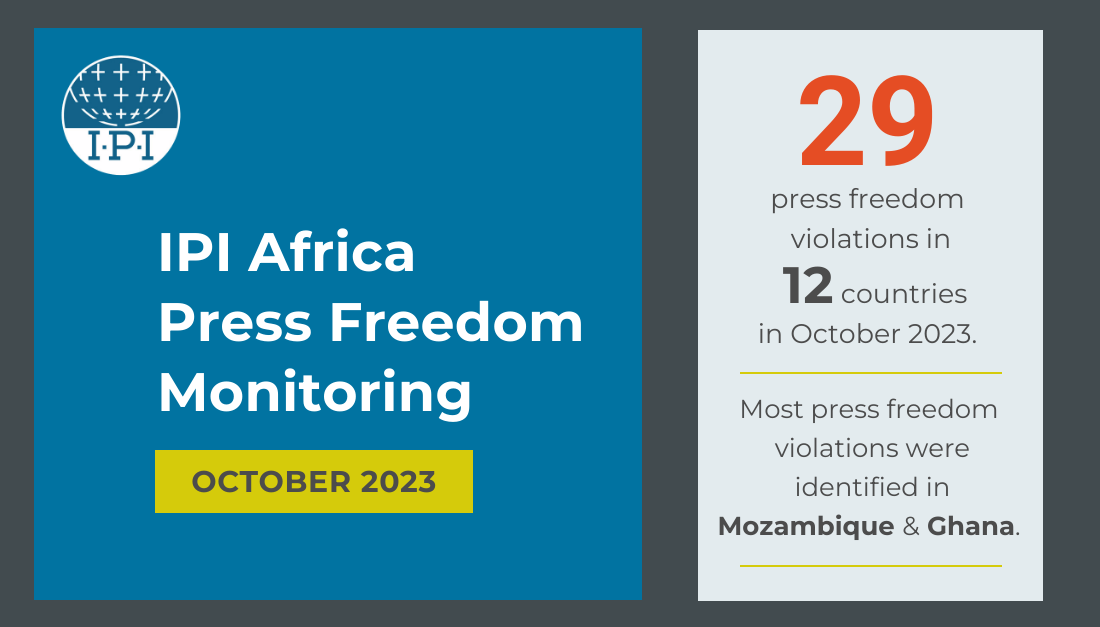In October 2023, IPI documented 29 threats to press freedom in 12 countries in sub-Saharan Africa. The category of “physical, verbal, and online attacks” registered the highest number of threats. The violations and threats in October involved 46 male and 12 female journalists. State actors remain the main perpetrators, responsible for more than 82% of the attacks on journalists and media, with the police or security forces (46%) leading the list.
DOWNLOAD THE FACTSHEET HERE (pdf file)
On October 10, elements of the Rapid Support Forces (RSF) in Sudan killed Halima Idris Salim, a journalist with the online platform Sudan Bukra. Salim was run over by an RSF vehicle while she was reporting in Khartoum, Sudan’s capital.
In Ghana, on October 20, military officers in Akim Oda, eastern Ghana, assaulted journalist Nicholas Morkah of Akyemansa FM. Morkah was filming the officers’ assault of a young civilian. The officers then assaulted Morkah and drove him to their barracks where they forcefully reset his phone, clearing all stored information. They interrogated him about his work. Morkah was later charged with offensive conduct and released on bail.
On October 10, 2023, police arrested Saint Mienpamo Onitsha, journalist, and founder of NAIJA Live TV, in Bayelsa state in south Nigeria, over a report he published about the alleged killing of a man outside of the office of the Presidential Amnesty Program. The police detained the journalist and flew him to Abuja the following day. On October 17, the police charged him with cyberstalking and defamation under the Cybercrimes Act and the Criminal Code Act, which may lead to a fine of 25 million naira (about 30,000 euros) and up to two and 10 years in prison, respectively.
In Uganda, on October 5, and in Guinea, on October 16, at least a dozen journalists were assaulted and arrested, respectively. In Zimbabwe, on October 22, at least seven journalists were forced to delete photos taken of Vice President Kembo Mohadi who reportedly collapsed while addressing a Zanu PF gathering in the Gutu West constituency.
In Mozambique, on October 11, reports indicated that the country experienced an internet blackout on the main operator around the closing of polls during municipal elections. It is unclear what the cause of the blackout was. However, the incident denied people access to information on the tabulation of results. Additionally, several instances of threats to press freedom were reported on the same day. According to the National Union of Journalists (SNJ), in the provinces of Nampula and Zambézia and the city of Maputo in particular, teams of journalists reporting on the voting process were assaulted by members of political parties, election agents, and security forces. For instance, a police officer prevented journalist Luís Simindila of Rádio Zambézia FM from doing a live broadcast. The president of one of the polling stations installed in a primary school in the Coalane district of Quelimane prevented Nova Rádio Paz reporter Antenor Frederico from covering the vote count.
